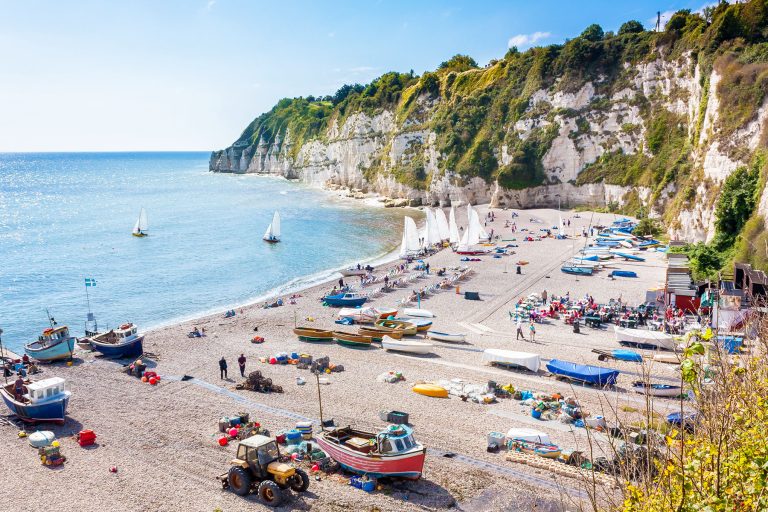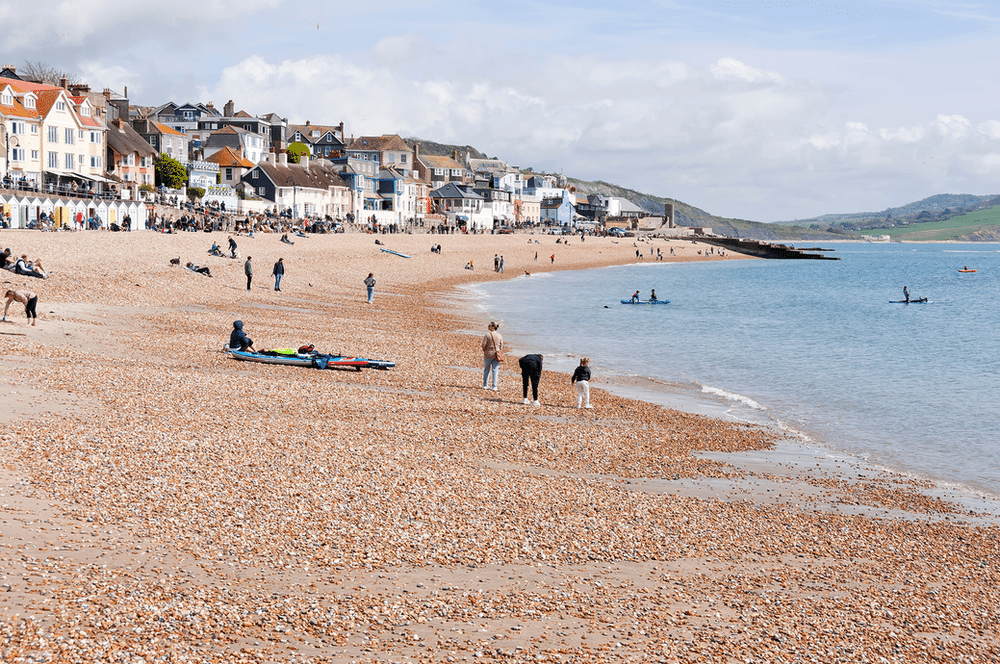Adventure Activities Licensing Regulations Follow Deaths of Four Students on 1993 Kayaking Trip

March 22, 1993 was a beautiful morning to be out on the water of Lyme Bay on the south coast of England. At around 10 am, eight students and their teacher launched from the sandy harbor, accompanied by two professional outdoor guides, for a two-hour kayak trip. They would paddle a few kilometers down the shore, then return. They’d be back by lunch.
The kayak instructors were not highly experienced, with one only having paddled a total of 400 meters previously. Not long after launching, one of the participants capsized. As one instructor worked with him, the second instructor rafted the other kayakers together in a group. Winds pushed the flotilla of kayaks so far from the first participant they could no longer see each other.
The wind-blown waves were now one meter high. One of the kayaks was swamped, then another. Eventually, all nine kayakers were in the eight degree Centigrade water. They were swept out to sea and became separated from each other, spreading over an eight-kilometer area.
Noon came and went. Although the group was supposed to have returned by now, nobody at the outdoor program initiated a search and rescue process or alerted the authorities. The instructors were not carrying flares or a VHF radio. The victims blew their emergency whistles but this was not effective.
An upturned boat was discovered by a fisherman, who called the coast guard. A lifeboat and helicopter went to rescue the boaters. The rescue began close to four hours after the group was supposed to have returned to shore.
Four of the students drowned.
An investigation found the tragedy to be preventable. The outdoor program failed to properly organize the kayaking program. It failed to employ appropriately trained guides. The trip leaders held only basic one-star kayaking awards (qualifications), rather than a full certificate, in which rescue scenarios are practiced. And the organization failed to put in place and properly use emergency procedures.
Activity leaders had complained to management that safety systems were inadequate, but the administration failed to address all the concerns.
The program was criticized for not providing gloves, headwear and footwear to keep participants warm. Management failed to call the coast guard for hours, delaying the rescue response. When the coast guard was called, they were told the instructors were competent and had flares, which was untrue.
The owner of the outdoor program was convicted of “gross negligence manslaughter,” and was jailed for over a year.
Also as a result, a governmental regulatory body was created to control commercial adventure activities in the UK. Government regulations then replaced voluntary codes that could be used by outdoor activity organizations.




